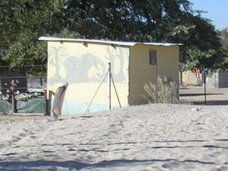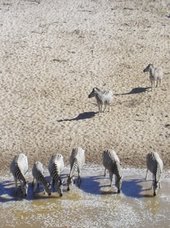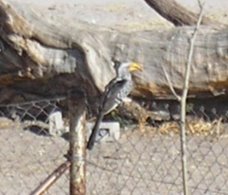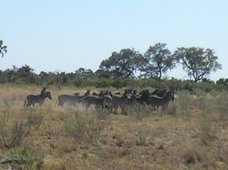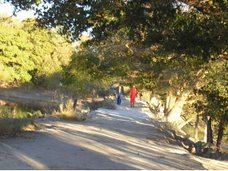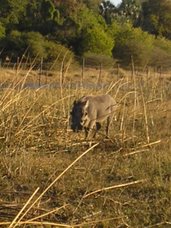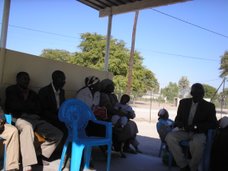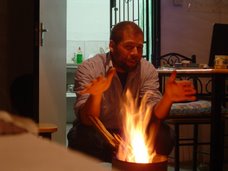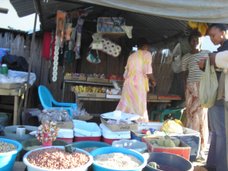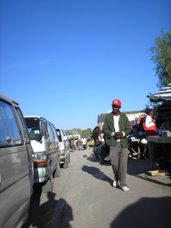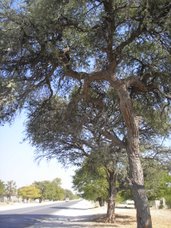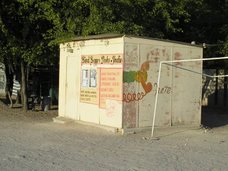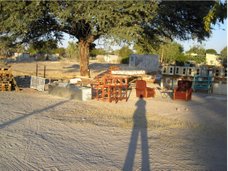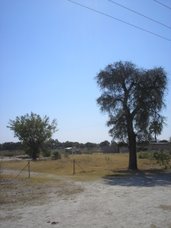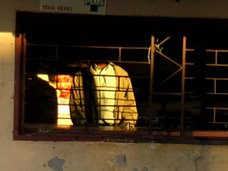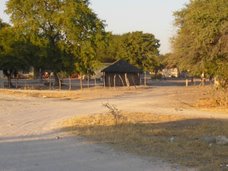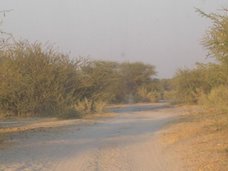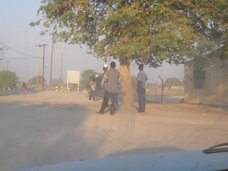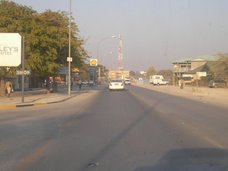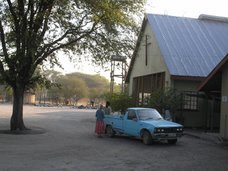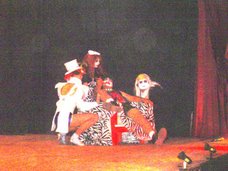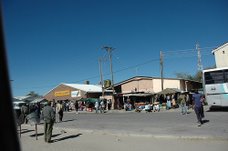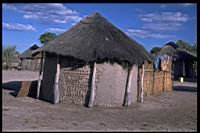And believe it or not, the cultural cleansing rites seem to have worked, as the sky suddenly turned cloudy and the soft breeze cooled the hot weather.
I found these on Mmengi Online. Mmegi is published by Dikgang Publishing Company (DPC). The newspaper was established in 1984. Mmegi is the only daily independent newspaper in Botswana. The newspaper is read by a cross-section of the population including students, policy makers, intellectuals and the business community. Over the past 10 years Mmegi won the prestigious Institute of Bankers “Newspaper of the year Award” nine times.
Bats terrorise Maun Civil Servants
NOMSA NDLOVU
CORRESPONDENT MAUN:
An invasion by an army of bats has chased civil servants in Komane village, 26km west of Maun, out of their houses to seek accommodation elsewhere. Councillor Morolong Mosimanyane of Komane ward brought the matter to the attention of the Minister of Environment, Wildlife and Tourism Kitso Mokaila last week and said the bats have been terrorising the village since 2004.
He said that the bats use ceilings as their abode and the most affected houses are those of the teachers, nurses, and local police officers. Morolong told Mokaila that wildlife officers should be sent to deal with the bats. He said if wildlife officers had not prevented them, the residents would have long used other means to wipe out the animals.
"When we reported the matter, your officers instructed that we should not kill the creatures because they are a protected species. They said the only thing we should do is to remove them and patch the ceiling, but we tried and failed. Therefore I request you to send your officers to remove them from our area because we are tired of the anguish that they are causing us," he said.
Morolong explained that the animals are inactive by day but at night they come out of their hiding places and trouble residents. Their noises prevent the civil servants and their families from sleeping and cause panic. The occupants of the houses were then forced to move out and seek accommodation elsewhere. The problem affects most villagers with modern houses.
Morolong told Mmegi that besides the noises, the bats defecate and urinate constantly, causing a pungent smell and resistant stains on clothes, walls and the ceiling.
He said that the bats use ceilings as their abode and the most affected houses are those of the teachers, nurses, and local police officers. Morolong told Mokaila that wildlife officers should be sent to deal with the bats. He said if wildlife officers had not prevented them, the residents would have long used other means to wipe out the animals.
"When we reported the matter, your officers instructed that we should not kill the creatures because they are a protected species. They said the only thing we should do is to remove them and patch the ceiling, but we tried and failed. Therefore I request you to send your officers to remove them from our area because we are tired of the anguish that they are causing us," he said.
Morolong explained that the animals are inactive by day but at night they come out of their hiding places and trouble residents. Their noises prevent the civil servants and their families from sleeping and cause panic. The occupants of the houses were then forced to move out and seek accommodation elsewhere. The problem affects most villagers with modern houses.
Morolong told Mmegi that besides the noises, the bats defecate and urinate constantly, causing a pungent smell and resistant stains on clothes, walls and the ceiling.











